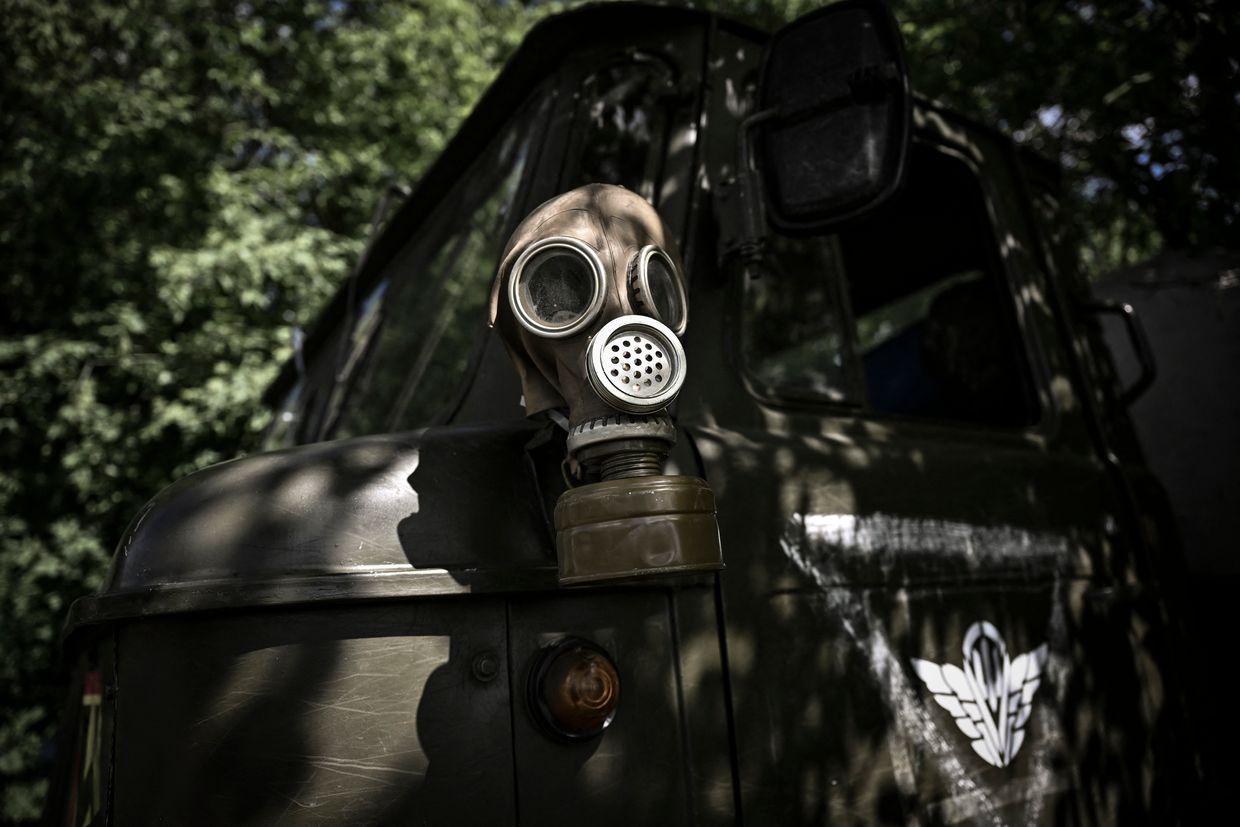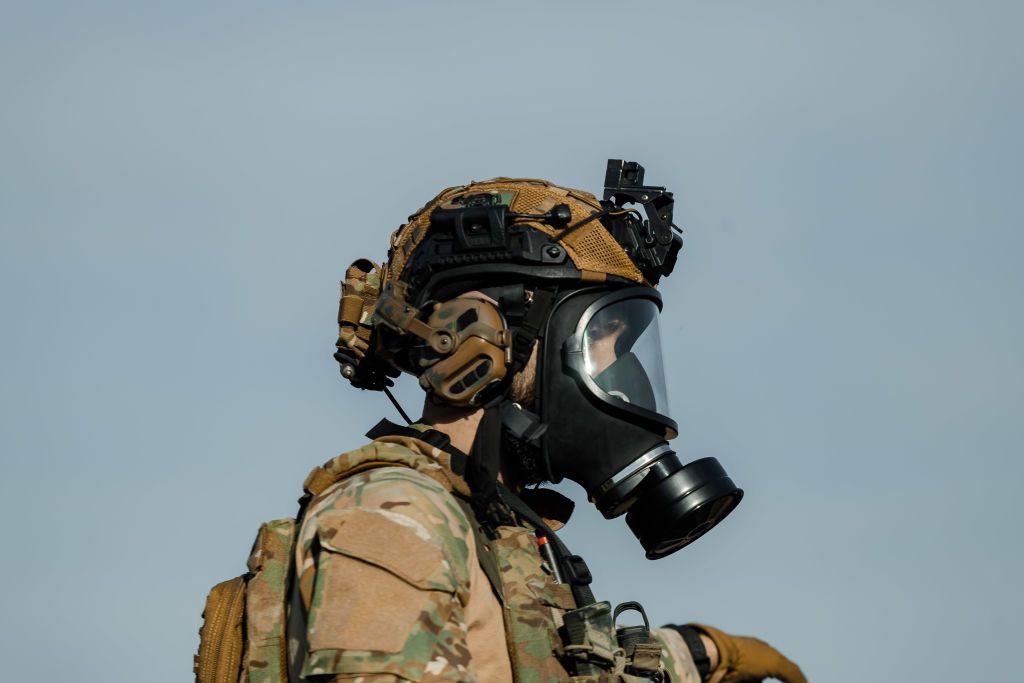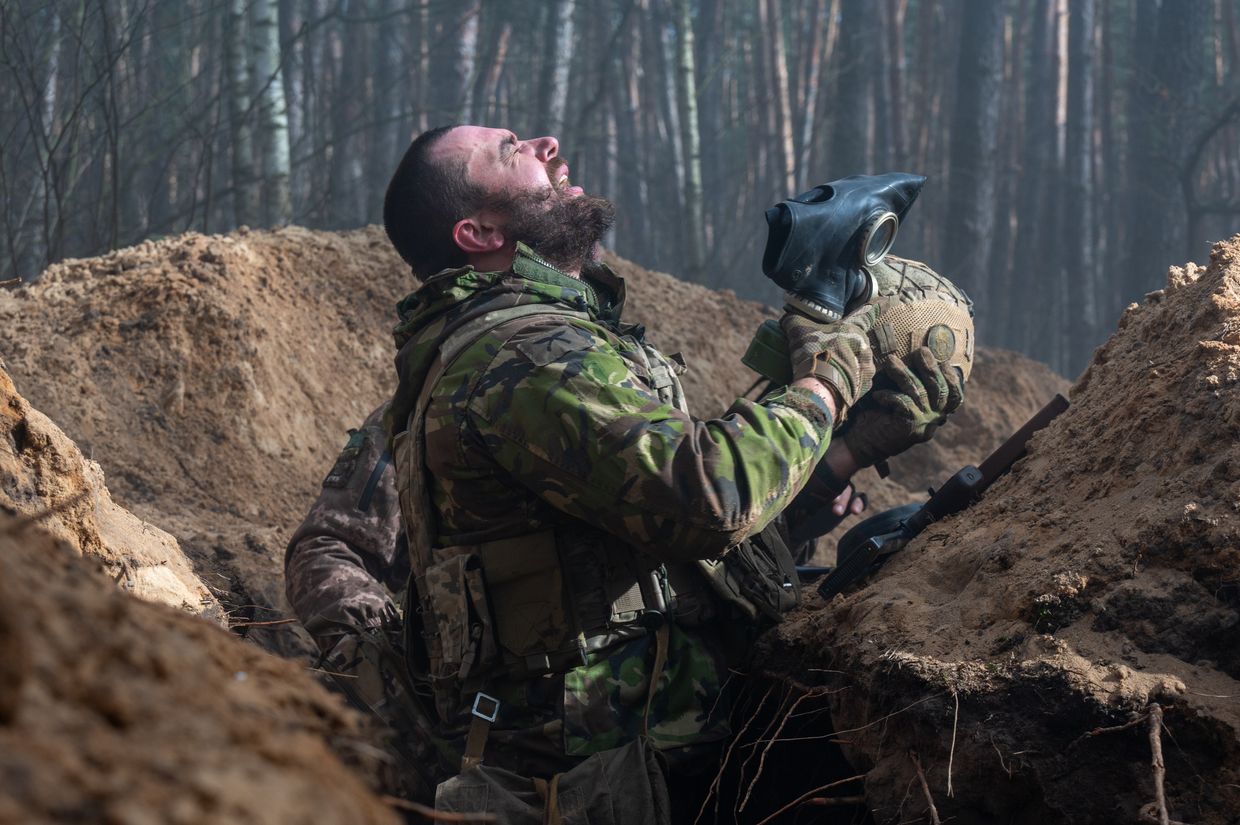
The Organisation for the Prohibition of Chemical Weapons (OPCW) confirmed on Nov. 18 that a riot control agent known as CS has been used in Ukraine, as evidence mounts that Russia has scaled up its attacks using chemical weapons in recent months.
The United Nations watchdog OPCW’s first confirmation about the tear gas usage comes as Russia has intensified its use of chemical agents since the beginning of the year to advance forward across Ukraine’s front line.
Russian drones throw gas grenades into dugouts or trenches in an attempt to force Ukrainian soldiers out into the open field, making them easy prey for drone or artillery attacks.
The U.S. and the U.K. have confirmed Russia’s deployment of chemical weapons against Ukrainian soldiers, slapping sanctions on Russia’s troops of Radiological, Chemical and Biological Defense, their chief, Russian Defense Ministry scientific centers, and companies involved.
The Ukrainian military has reported that it recorded over 4,600 cases of Russia using gas attacks on the battlefield since the beginning of the full-scale invasion in 2022, including 323 incidents in November.

Without naming Russia nor directly confronting Moscow for violating the Chemical Weapons Convention, the OPCW said that samples from both the grenade and the soil sample retrieved from a September incident at a specific trench “contained the riot control agent 2-Chlorobenzylidenemalononitrile, known as CS.”
While often used to disperse riots and considered nonlethal, the OPCW says that tear gas, including CS, is “considered chemical weapons if used as a method of warfare.”
The samples — which underwent separate testing in two OPCW-designated laboratories — were collected from a trench “located along the confrontation lines with the opposing troops” in Dnipropetrovsk Oblast, according to the report.
The OPCW said in the Nov. 18 report that the watchdog’s Director-General, Ambassador Fernando Arias, “expressed grave concern over the findings.”
“All 193 OPCW Member States, including the Russian Federation and Ukraine, have committed never to develop, produce, acquire, stockpile, transfer or use chemical weapons,” Arias said.
He stressed that the parties have declared that “any use of chemical weapons is totally unacceptable and would violate the legal norms and standards of the international community.”
Earlier in May, OPCW said that Russia and Ukraine have accused each other of deploying chemical weapons, but “the information provided to the Organization so far by both sides, together with the information available to the Secretariat, is insufficiently substantiated.”
Kyiv's rising concerns over unidentified gas
While Russia’s usage of chemical agents has slightly decreased since August, when 447 cases were recorded by the Ukrainian military within a month, Kyiv has been concerned about unidentified gas being deployed against its soldiers.
Lacking “hundreds” of complex detectors that cost $100,000 to $600,000 to identify the chemicals used by Russian troops, the Ukrainian military has struggled to name the new or mixed types of gas to find a solution to how to protect its personnel, Ukrainian Colonel Artem Vlasiuk told the Kyiv Independent in October.
Of the 323 recorded cases of Russia’s chemical attacks in October, all except 15 incidents were “unidentified,” according to Vlasiuk from the Support Forces’ Radiation, Chemical, and Biological Protection Command, a branch of the army responsible for inspecting chemical warfare.
The officer said that Ukraine struggled to identify the new types of gas because it lacked sophisticated high-end detector technology to diagnose beyond the few prototypes in its library — which includes CS, CN, chloropicrin, and ammonia.
It is often very difficult to send specialists to the front line for evidence collection, as it would mean risking their lives by having them walk kilometers to reach the positions. And when soldiers come under gas attacks, gathering the remains of the grenades used is usually not the priority.
The concerns over the unidentified gas come as dozens of Ukrainian soldiers interviewed by the Kyiv Independent across the front over the summer acknowledged their lack of preparedness to face chemical warfare. Many said they were only given the poor quality Soviet-era gas masks and that they do not take it to positions because they are skeptical of its effectiveness.
Often, comparing the danger of chemical agents to KAB guided-aerial bombs, artillery, and precise FPV drones, the infantrymen interviewed often downplayed the threat of gas — arguing that they had more chance of being killed or wounded by conventional arms.
At least three Ukrainian soldiers died from Russia’s gas attacks, and almost 2,100 soldiers sought medical care after such incidents, according to the Support Forces. Many more could have gone unrecorded.


